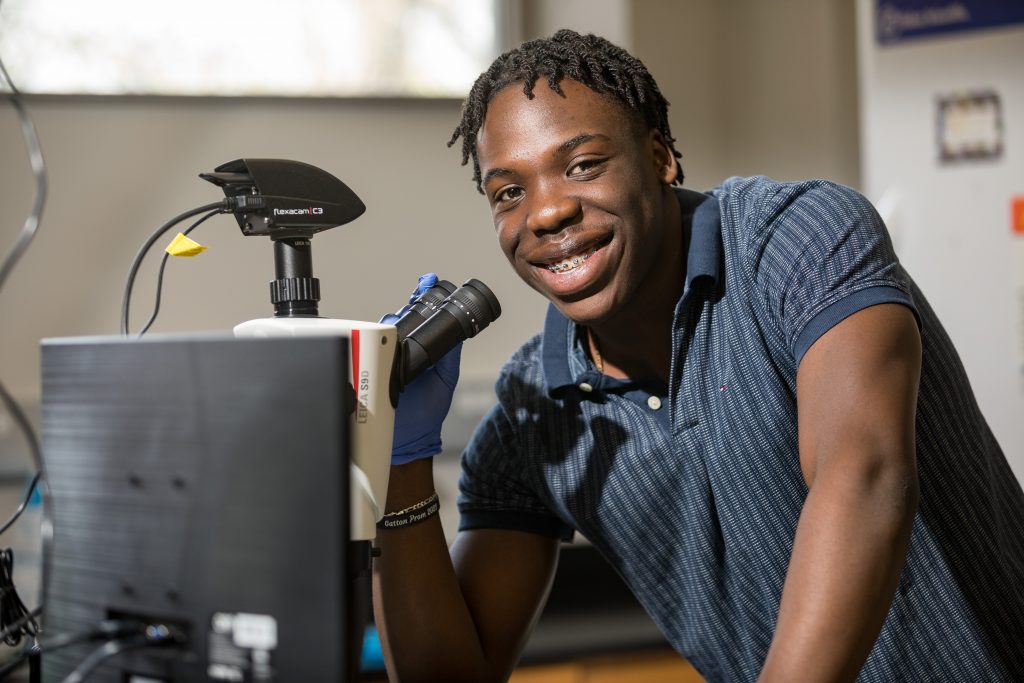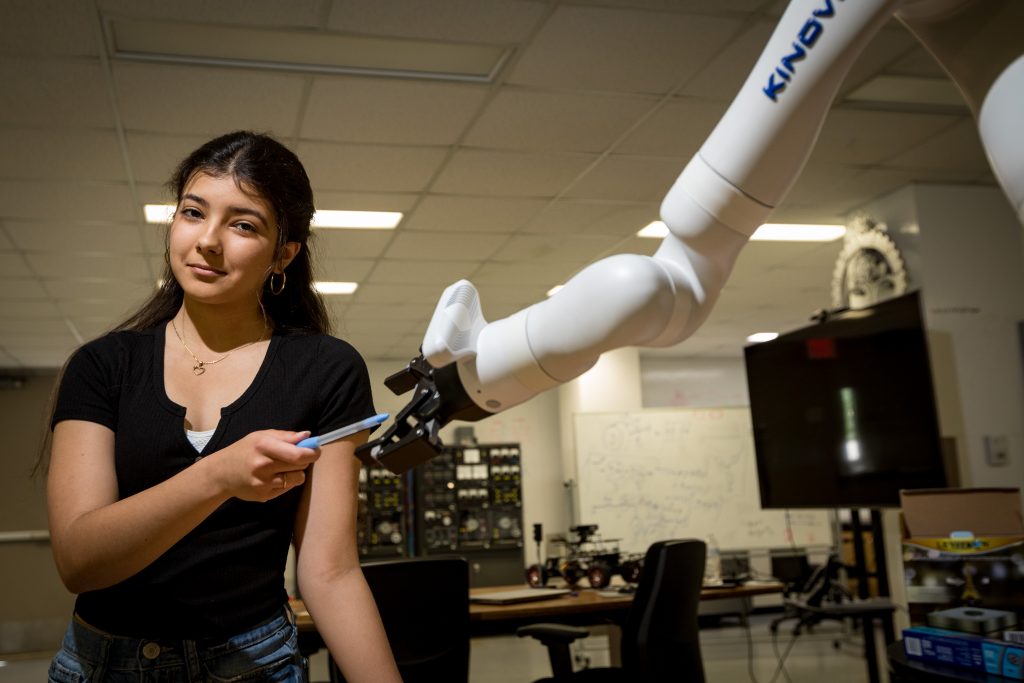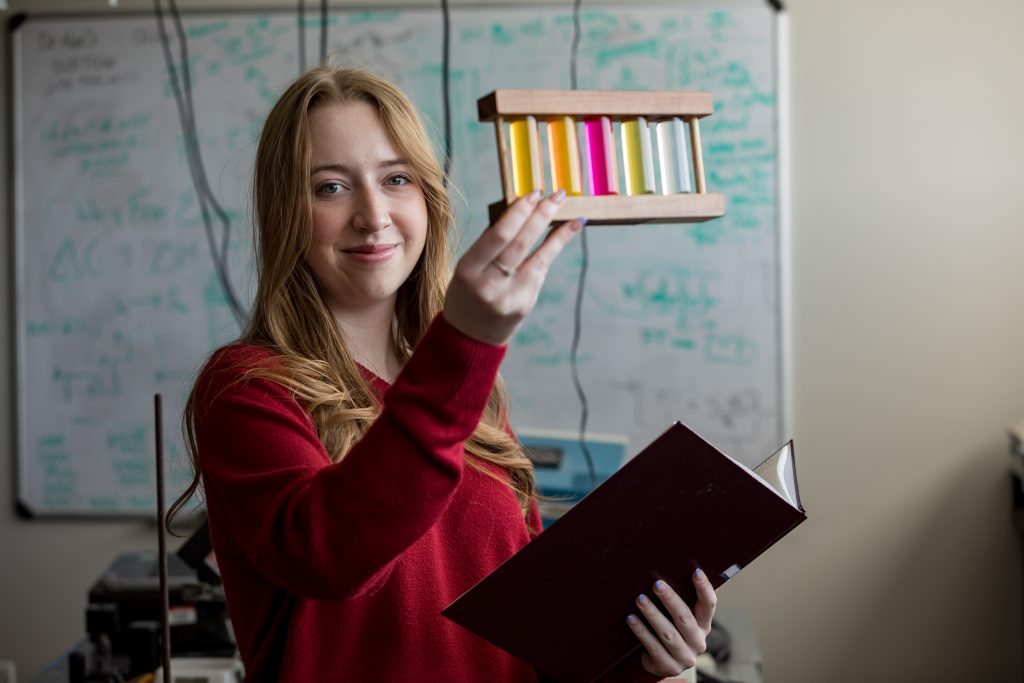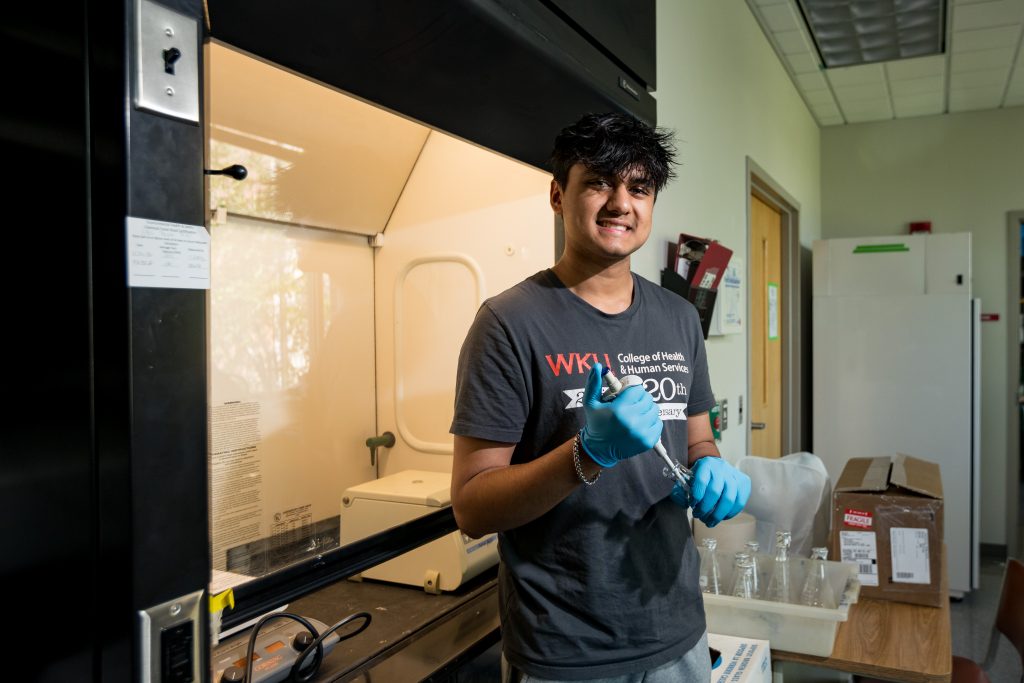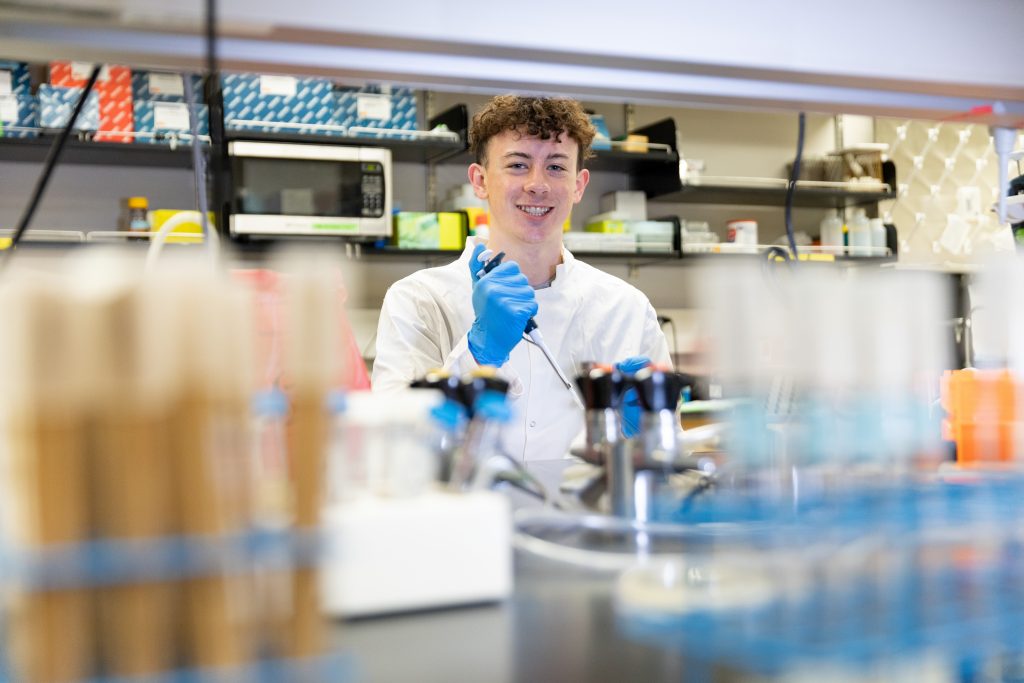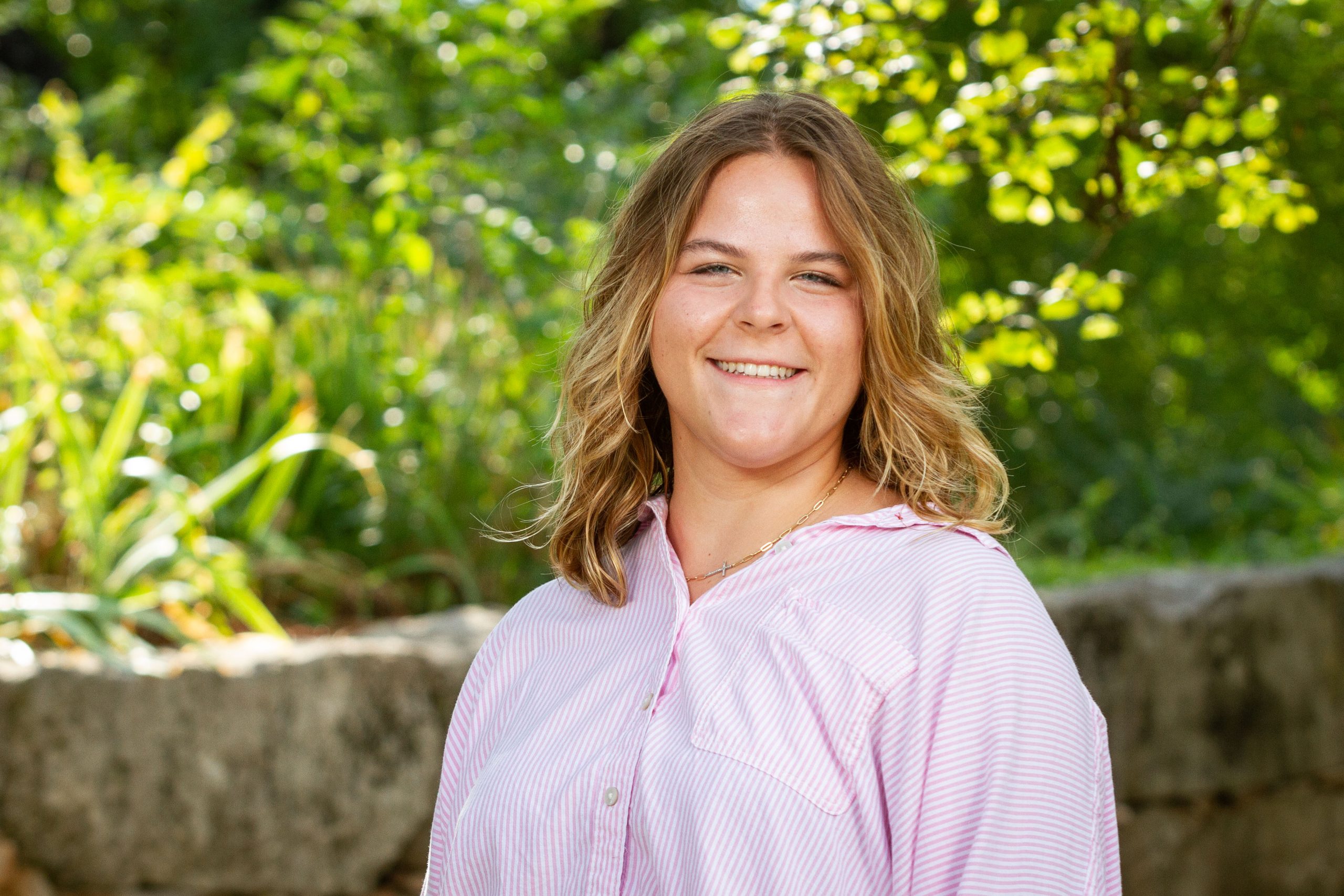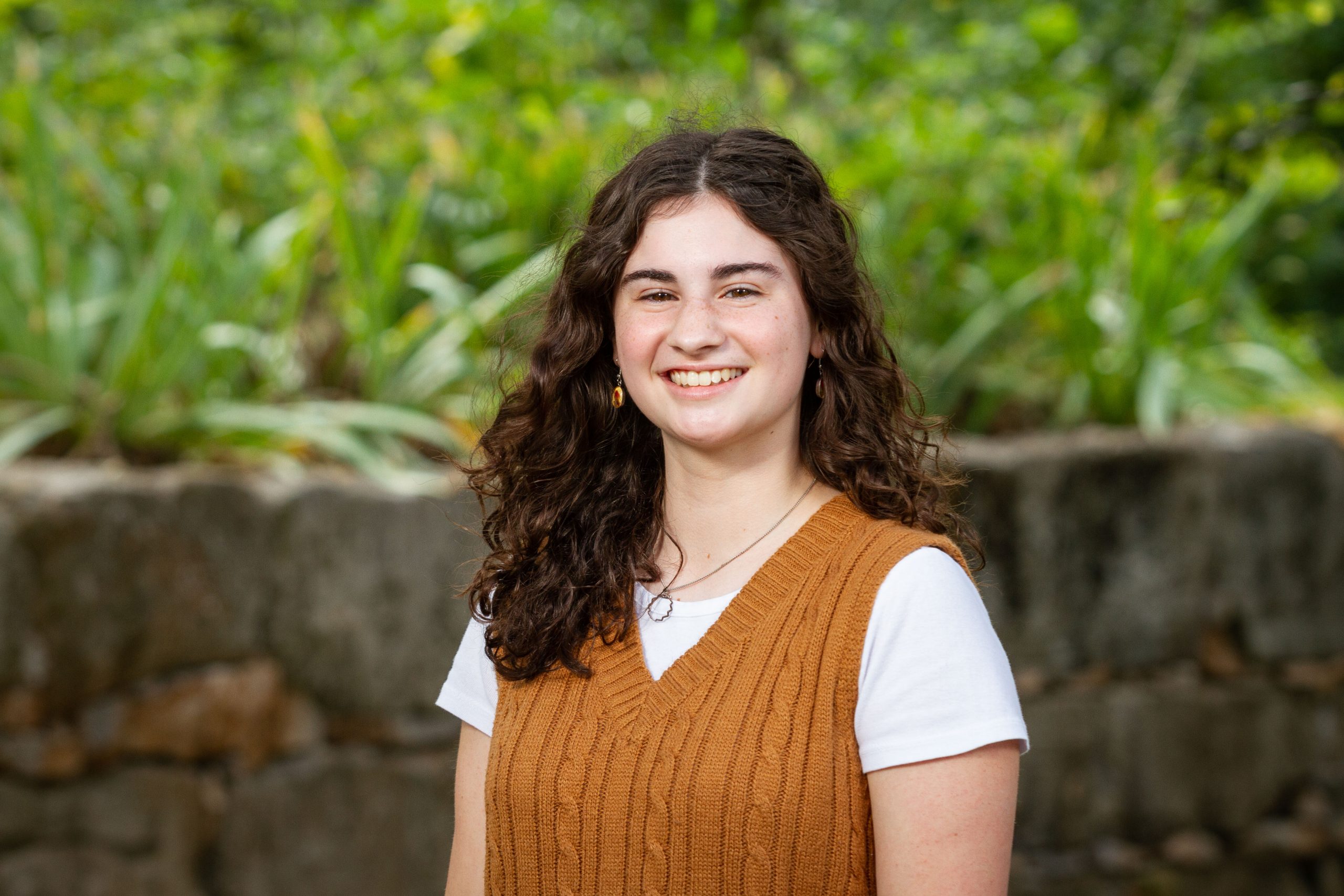Research at Gatton
August 16, 2023 | Tasha Otieno | No Comments

One of the ways Gatton stands out from typical high schools is through the various research opportunities offered. Gatton promotes research participation so students can explore their interests, meet new faculty and mentors, gain experience in a lab, and connect with peers in their field.
The various ways a student can participate in research include:
Western Kentucky University (WKU) Research: There are many research opportunities available just by being a part of Gatton. Since we are dually enrolled as high schoolers as well as WKU students, we have access to the same undergraduate research projects that typical WKU students have. We have the opportunity to be a part of faculty-led research projects in many different areas like agriculture, business, biology, chemistry, technology, psychology, communication, nursing, math, public health, etc.
Research Internship Grant (RIG): If you are unable to find research in your area of interest at WKU, RIG is a good way to participate in research at other institutions and organizations. Students already connected with WKU research can continue that over the summer through a RIG as well. RIG is a grant given to Gatton students who want to pursue research internships in the summer at WKU or other universities around the United States. Recently, Gatton students have conducted research at universities like Icahn School of Medicine at Mount Sinai, Purdue University, University of Kentucky, Indiana University, University of Lousiville, Brown University, etc.
The Genome Discovery and Exploration Program (GDEP): The GDEP program is a two-semester commitment to undergraduate research during your junior year at Gatton. Students get the chance to participate in a hands-on research project both inside and outside of the classroom. Students explore different topics in biology and chemistry ranging from genetics and microbiology to biotechnology and ecology. I was a participant in this program when I first came to Gatton. It not only helped me learn basic lab techniques and gain research experience, but it opened up the doors for the future research opportunities I would get to be a part of.
Summer Research Opportunities: There are a lot of research programs available for both high schoolers and college students in the summer. As a Gatton student, you qualify for both of these programs. There are college institutions that have structured programs where high schoolers can conduct summer research or take summer courses like MIT’s Minority Introduction for Engineering and Science (MITES ) program or Aspirnaut’s Summer Internship Program for Highschoolers. Gatton students are able to apply for these programs and also undergraduate research programs as well like Research Experience for Undergraduates (REU) programs.
Now the big question of how to get involved in these research opportunities. While it varies depending on circumstances and programs, there are a few tips I learned during my time here:
- REACH OUT: I cannot stress this enough, if anything interests you, take the time to reach out to these programs/organizations/faculty to show them you are interested. This is a good way to see if they have open spots in their labs, if they are full, or be on their radar when they have an opening. This is also your chance to explain your career goals, interests, planned major, etc, and learn more about their projects. For summer research programs, I suggest applying even if you don’t think you’re qualified. You’ll miss out on many opportunities if you don’t try.
- Use your resources: There are many opportunities for summer research and Gatton has staff here to help you find and get these opportunities. Our Assistant Director of Academic Services, Sam Earls, can help you find WKU research during the school year. Our Academic Opportunities Coordinator, Cheryl Kirby-Stokes, has composed a list of over 150 summer programs, internships, and research projects to help you find a good fit for you. Some of these programs require applications; others require resumes and interviews. The staff here are happy to help with reviewing essays and resumes, narrowing down your search based on your interests, and conducting mock interviews. All you have to do is reach out!
- Do your own research: If you know you are interested in something or want to explore something in a specific area, you can look on WKU’s faculty page to see what research different professors are a part of. This is a good way to familiarize yourself with different projects here at WKU and see what’s out there. Once you find a few projects/areas that you like, reach out to let them know you’re interested. For external programs, read the requirements to make sure your qualify. Some programs have an age requirement, some have course requirements, and some have past research requirements. You can save a lot of time if you know this before applying. Looking at past research projects for specific programs can also help you determine if it is something you are interested in.
All in all, research is a great way to get involved in whatever area you are interested in. There are plenty of opportunities available if this is something you choose to do!
